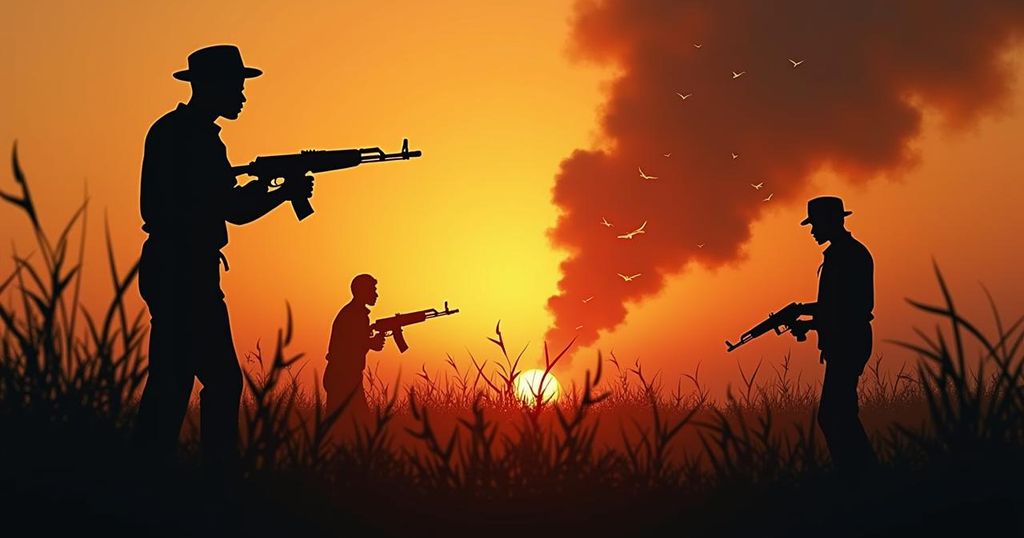Tensions between Nigeria and South Africa have escalated from historical roots to contemporary disputes in sports, culture, and politics. A recent incident involving Nigeria’s youth basketball team underscores ongoing rivalry, highlighting systemic issues stemming back to the end of apartheid. Despite efforts for reconciliation, societal ramifications and competition in sectors like music continue to fuel discord between these two influential African nations.
The rivalry between Nigeria and South Africa has deep historical roots, punctuated by both political tensions and more recent disputes in various domains including sports and cultural exchanges. A noteworthy incident occurred recently when diplomatic intervention was required to enable Nigeria’s under-18 basketball team to participate in an international competition in South Africa. Nigerian officials alleged that South Africa attempted to prevent the team from competing, highlighting ongoing discord between these two significant African nations. The tensions can be traced back to the post-apartheid era, particularly following the end of apartheid and South Africa’s first democratic elections in 1994, during which Nigeria was under military rule. This friction was exacerbated in 1996 when Nelson Mandela openly criticized the Nigerian government for executing the activist Ken Saro-Wiwa, leading to Nigeria’s military ruler, General Sani Abacha, boycotting the African Cup of Nations held in South Africa. This marked the beginning of a prolonged period of rivalry. International relations expert Olawale Olusola remarked that “Nigeria-South Africa relations have been at a very low ebb,” a sentiment echoed following violence directed towards Nigerians in South Africa in 2019, which prompted a wave of retaliatory actions, including the looting of South African businesses in Nigeria. Despite attempts to mend relations, as demonstrated during a state visit where extensive cooperation agreements were signed, incidents like the recent basketball permit controversy suggest the rivalry persists. The initial denial of travel permits for Nigeria’s youth basketball team was labeled a “deliberate attempt” to prevent their participation by Ugo Udezue, the team’s lead official. Moreover, the rivalry extends beyond athletics; practical implications have been observed in other sectors such as ride-sharing apps and cultural showcases. For example, a Miss South Africa contestant with Nigerian heritage withdrew from the competition due to severe xenophobic backlash, indicating broader societal tensions. In addition to inter-nation conflicts, there are emerging skirmishes in the music industry, where artists like Tyla from South Africa have found themselves in contentious situations amid debates over music accolades, leading to public disagreements about representation of African genres like Afrobeats and Amapiano. Some analysts suggest that South Africa’s motivations are politically driven, with former Nigerian Foreign Minister Bolaji Akinyemi asserting that South Africa’s actions may aim to undercut Nigeria’s standing within international forums such as the BRICS alliance and efforts for a permanent seat on the UN Security Council. Despite the competitive nature of the relationship, both Nigeria and South Africa maintain significant trade ties, and scholars like Olusola argue that focusing on collaborative prospects rather than rivalry could yield benefits for both nations.
The relationship between Nigeria and South Africa is marked by a historical rivalry exacerbated by political, social, and cultural disputes. The culmination of these tensions can be traced back to post-apartheid dynamics, particularly the political liberalization in South Africa contrasting with Nigeria’s military governance until the late 1990s. High-profile incidents, including international criticism from figures like Nelson Mandela, played a significant role in jarring diplomatic relations. Ongoing issues have also impacted cultural exchanges and international sports, underscoring the gravity and multifaceted nature of their rivalry.
In summary, the Nigeria-South Africa rivalry, rooted in political history, continues to manifest across various sectors, including sports, culture, and trade. Despite attempts at reconciliation, instances of tension remain prevalent, signaling a need for a more constructive approach towards collaboration. As both nations stand to gain from mutual cooperation, it is imperative for their leadership to transcend historical grievances for the benefit of their respective populations.
Original Source: arynews.tv






